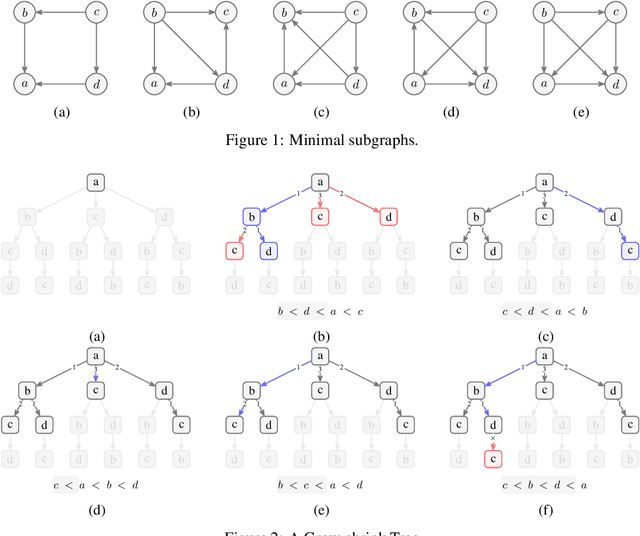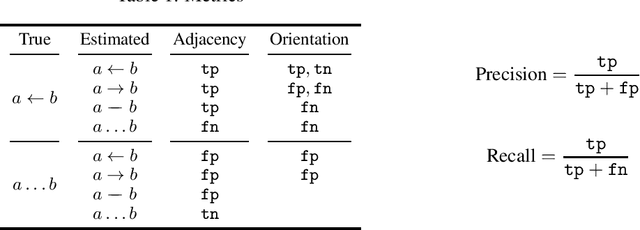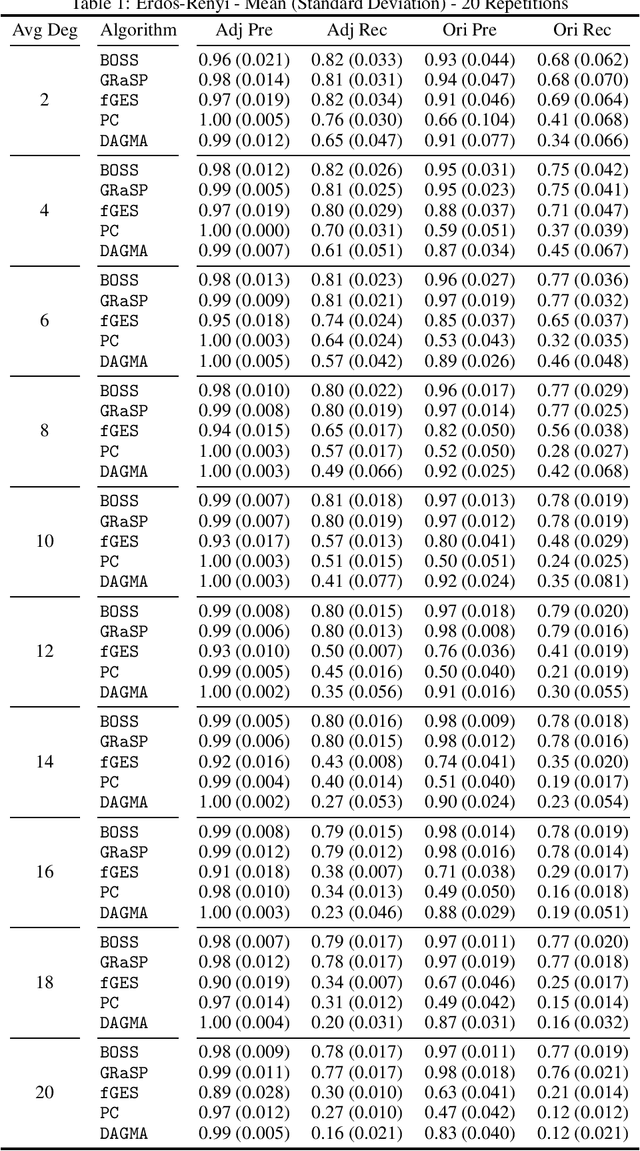Jazmin Camchong
Fast Scalable and Accurate Discovery of DAGs Using the Best Order Score Search and Grow-Shrink Trees
Oct 26, 2023



Abstract:Learning graphical conditional independence structures is an important machine learning problem and a cornerstone of causal discovery. However, the accuracy and execution time of learning algorithms generally struggle to scale to problems with hundreds of highly connected variables -- for instance, recovering brain networks from fMRI data. We introduce the best order score search (BOSS) and grow-shrink trees (GSTs) for learning directed acyclic graphs (DAGs) in this paradigm. BOSS greedily searches over permutations of variables, using GSTs to construct and score DAGs from permutations. GSTs efficiently cache scores to eliminate redundant calculations. BOSS achieves state-of-the-art performance in accuracy and execution time, comparing favorably to a variety of combinatorial and gradient-based learning algorithms under a broad range of conditions. To demonstrate its practicality, we apply BOSS to two sets of resting-state fMRI data: simulated data with pseudo-empirical noise distributions derived from randomized empirical fMRI cortical signals and clinical data from 3T fMRI scans processed into cortical parcels. BOSS is available for use within the TETRAD project which includes Python and R wrappers.
Penalized model-based clustering of fMRI data
Oct 13, 2020



Abstract:Functional magnetic resonance imaging (fMRI) data have become increasingly available and are useful for describing functional connectivity (FC), the relatedness of neuronal activity in regions of the brain. This FC of the brain provides insight into certain neurodegenerative diseases and psychiatric disorders, and thus is of clinical importance. To help inform physicians regarding patient diagnoses, unsupervised clustering of subjects based on FC is desired, allowing the data to inform us of groupings of patients based on shared features of connectivity. Since heterogeneity in FC is present even between patients within the same group, it is important to allow subject-level differences in connectivity, while still pooling information across patients within each group to describe group-level FC. To this end, we propose a random covariance clustering model (RCCM) to concurrently cluster subjects based on their FC networks, estimate the unique FC networks of each subject, and to infer shared network features. Although current methods exist for estimating FC or clustering subjects using fMRI data, our novel contribution is to cluster or group subjects based on similar FC of the brain while simultaneously providing group- and subject-level FC network estimates. The competitive performance of RCCM relative to other methods is demonstrated through simulations in various settings, achieving both improved clustering of subjects and estimation of FC networks. Utility of the proposed method is demonstrated with application to a resting-state fMRI data set collected on 43 healthy controls and 61 participants diagnosed with schizophrenia.
 Add to Chrome
Add to Chrome Add to Firefox
Add to Firefox Add to Edge
Add to Edge